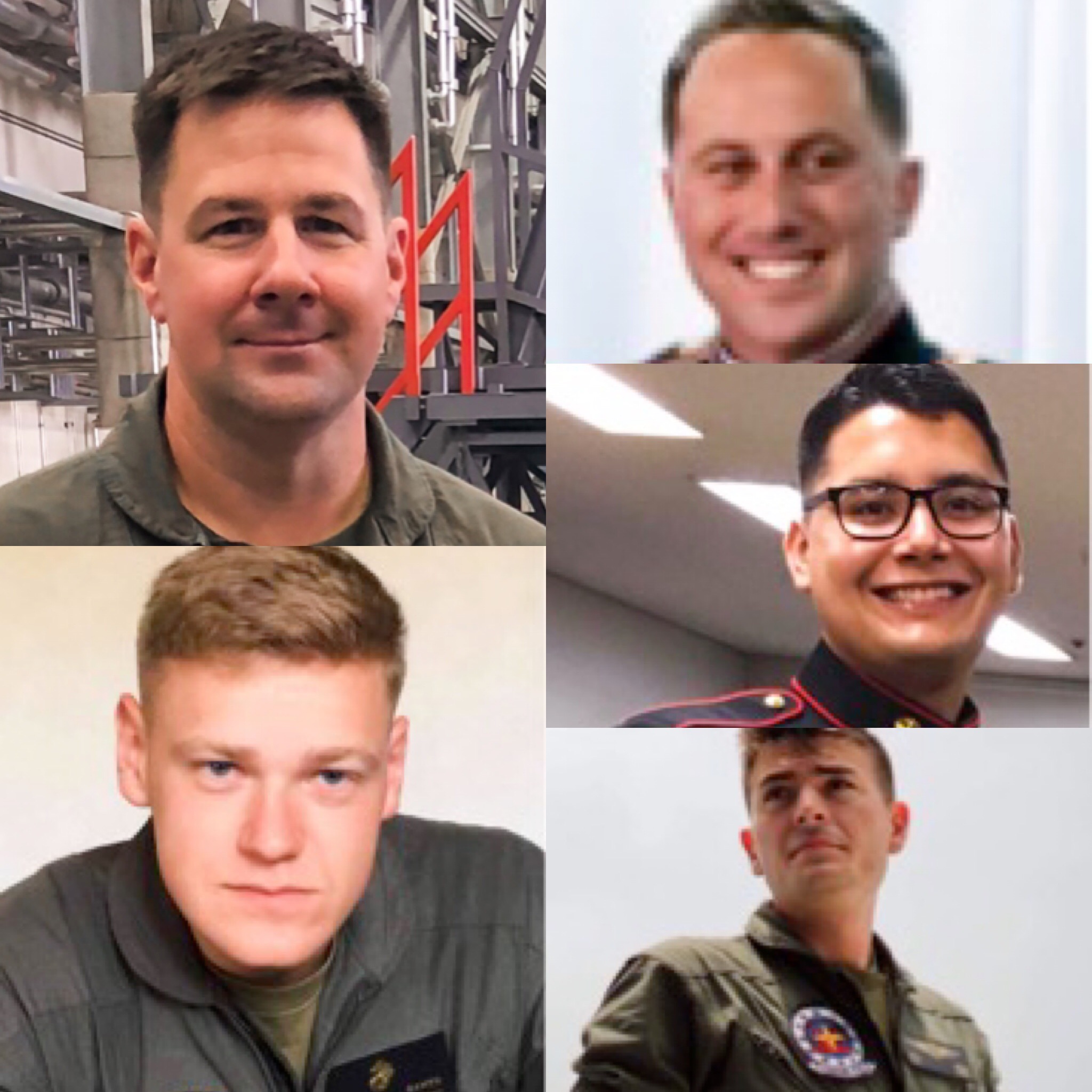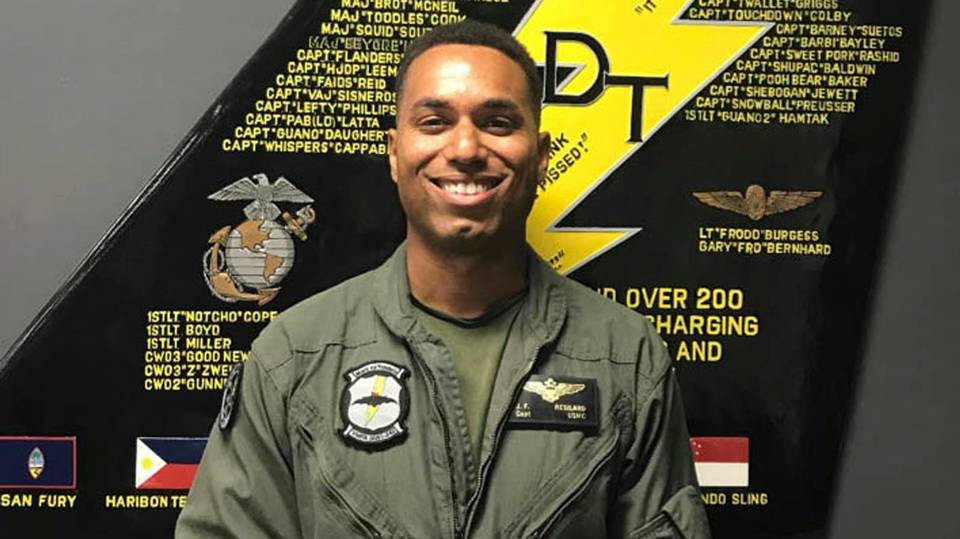
The Marine Corps found that pilot error, inadequate oversight of training and operations and an unprofessional command climate contributed to the Dec. 6 crash of an F/A-18D Hornet and a KC-130J Super Hercules aircraft that killed six Marines and injured one.
The commandant of the Marine Corps may appoint a Consolidated Disposition Authority (CDA) to continue investigating the findings of the Judge Advocate General Manual (JAGMAN) investigation, which was recently concluded and just announced today. Four officers from the Hornet squadron, Marine All-Weather Fighter Attack Squadron 242, have already been relieved of duty throughout the course of the investigation.
“At approximately 1:30 a.m. on December 6, 2018, while flying at an altitude of 15,000 feet, two F/A-18Ds assigned to VMFA(AW)-242 joined a KC-130J assigned to [Marine Aerial Refueler Transport Squadron 152] for air-to-air refueling. The first F/A-18D (F/A-18 Flight Lead) completed refueling and moved to a position on the right side of the KC-130J (Right Echelon). After the second F/A-18D completed refueling, its pilot requested and was approved to move to the left side of the KC-130J (Left Echelon), a non-standard maneuver for air-to-air refueling departure procedures. The pilot of the second F/A-18D was not experienced in conducting nighttime air-to-air refueling operations. The investigation indicates the mishap pilot lost situational awareness, unintentionally crossed over the top of the KC-130J from left to right, and collided with the rear of the tanker,” reads a summary of the investigation released today.
“The investigation was thorough, and included data recovered from the downed aircraft. Evidence shows both aircraft had been properly maintained and were fully functional before the collision. There is no evidence to suggest that either aircraft experienced any malfunctions prior to the collision,” the summary reads, before pointing to “a series of contributing factors were identified including, but not limited to: inadequate oversight of training and operations by the VMFA(AW)-242 leadership, an unprofessional command climate within VMFA(AW)-242, and the pilot of the mishap F/A-18’s lack of proficiency with the mission of night air-to-air refueling.”
During the course of the investigation, four squadron officers were fired: the commanding officer, Lt. Col. James Compton, in April; the executive officer, the operations officer and the aviation safety officer, according to the summary.
“The many findings of the investigation reconfirm our need to constantly evaluate risks, identify unsafe conditions, and ensure internal controls are being followed,” reads the summary.
Commanding General of III Marine Expeditionary Force Lt. Gen. H. Stacy Clardy wrote, when signing off on the investigation, that “we must all learn from these failures and not repeat them,” according to the summary. Both the Hornet and the Super Hercules squadrons involved in the collision fall under the 1st Marine Aircraft Wing under III MEF.
“In addition, the Commandant of the Marine Corps may direct the appointment of a Consolidated Disposition Authority (CDA) to further review the findings of the command investigation into this mishap. The CDA is an independent commander who will provide a comprehensive review of the investigation. The CDA may order a range of actions to include further investigation and/or administrative or disciplinary action in accordance with the Uniform Code of Military Justice. The CDA may also determine that no further action is necessary,” reads the summary.

During the nighttime crash, six Marines were killed. All five Marines on the KC-130J died: Lt. Col. Kevin Herrmann, 38, of New Bern, N.C.; Maj. James Brophy, 36, of Staatsburg, N.Y.; Staff Sgt. Maximo Flores, 27, of Surprise, Ariz.; Cpl. Daniel Baker, 21, of Tremont, Ill.; and Cpl. William Ross, 21, of Hendersonville, Tenn. The Hornet pilot, Capt. Jahmar Resilard, 28, of Miramar, Fla., also died.
The Hornet’s weapons system officer survived the crash and was not named publicly by the Marine Corps.
“Our deepest sympathies and condolences remain with the families and friends of Lt. Col. Kevin Herrmann, Maj. James Brophy, Capt. Jahmar Resilard, Staff Sgt. Maximo Flores, Cpl. Daniel Baker, and Cpl. William Ross. The loss of these Marines is still felt within their squadrons, their communities, and across the Marine Corps. As members of our Marine Corps family, we will continue to celebrate their lives and honor their memory,” the Marine Corps summary reads.
The Marine Corps conducted a salvage effort from late May to early June. The effort succeeded in retrieving the KC-130J’s cockpit voice recorder and digital flight recorder, which were sent to Naval Air Station Patuxent River in Maryland for analysis to assist in the investigation. The salvage effort also succeeded in retrieving remains of three Marines – Herrmann, Brophy and Flores – which were released to the Marines’ families.





